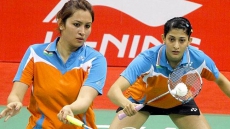OTTAWA — Medical regulators in every province have issued detailed guidelines doctors must follow to help suffering patients end their lives once Canada's ban on medically assisted dying is formally lifted next month.
And most of those guidelines impose safeguards similar to — or even more stringent than — those included in the federal government's proposed new law on assisted death.
The existence of guidelines in every province undercuts federal Justice Minister Jody Wilson-Raybould's contention that there'll be a dangerous legal void if the government's controversial new law on assisted dying isn't enacted by June 6.
That's the date on which the Supreme Court's landmark ruling last year, striking down the ban on medically assisted dying, goes into effect. The court suspended the ruling for 16 months to give the federal government time to enact a new law that allows assisted dying for clearly consenting adults with "grievous and irremediable" medical conditions who are enduring suffering that is intolerable to them.
Wilson-Raybould and Health Minister Jane Philpott have issued seemingly contradictory warnings about the dire consequences that will unfold if the proposed legislation isn't in force by June 6 — a feat that seems increasingly unlikely.
They maintain assisted death will be readily available without any safeguards to protect the vulnerable. At the same time, they contend many doctors will refuse to provide assistance in dying because of uncertainty about who is eligible.
Their arguments are "false," says Josh Paterson, executive director of the British Columbia Civil Liberties Association, a plaintiff in the case that led to the Supreme Court striking down the ban on assisted dying.
"Nobody should be concerned we're going to be in a Wild West situation after June 6. Furthest thing from the truth," Paterson said in an interview.
"Nobody is going to be left wondering what they're going to do on June 6. Everything in terms of the medical profession is ready to go ... We're not jumping into a void here, we're not on the edge of a cliff."

Like the proposed federal law, most of the various guidelines produced by provincial colleges of physicians and surgeons require that at least two doctors must agree that a patient meets the eligibility criteria for an assisted death, that a patient must submit a written request signed by witnesses, that there be a waiting period between the request and the provision of an assisted death, that a patient must be competent to give free, informed consent throughout the process, up to the time of dying.
Some impose more stringent safeguards, for instance putting the age of consent at 19 rather than the federally proposed 18, and requiring a psychiatric assessment in cases where depression or mental illness might impair a patient's ability to give consent.
The one big difference, said Paterson, is that the provincial guidelines rely on the relatively permissive eligibility criteria spelled out by the Supreme Court whereas the federal government is proposing more restrictive conditions.
The legislation would allow assisted death only for consenting adults who are in "an advanced stage of irreversible decline" from a serious and incurable disease, illness or disability and for whom a natural death is "reasonably foreseeable."
The Federation of Medical Regulatory Authorities of Canada has expressed concern that "reasonably foreseeable" death is "legal language that is far too vague" to enable doctors to confidently determine who is eligible for a medically assisted death.
"What does that mean exactly?... For all of us, death is reasonably foreseeable," Dr. Trevor Theman, registrar of the Alberta College of Physicians and Surgeons and past president of FMRAC, said in an interview.
While they struggle to interpret aspects of the Supreme Court's ruling as well, Theman said the court's eligibility criteria is more manageable for regulators.
Yet the federal government has all but ignored the wishes of medical regulators and the guidelines they've produced, citing instead approval of its proposed law by the Canadian Medical Association, which lobbies on behalf of doctors but does not regulate, license or discipline them.
"I'm not sure that the federal government generally ... has a good understanding about the role of medical regulators and our powers and our authority and our ability to regulate our professions," said Theman.
"So it may be that they see a void (if the legislation isn't enacted by June 6) because they're not used to dealing with us and they're less aware of what we're capable of."
The three territories do not have independent medical regulatory authorities. However, the Yukon government has issued guidelines for doctors similar to those produced in the provinces and the Northwest Territories government has promised to do the same by June 6.
Only Nunavut is waiting to see the final shape of the federal law. Even there, Paterson noted the eligibility criteria laid down by the Supreme Court will still apply, as in the rest of the country.

Notwithstanding Wilson-Raybould's dire warnings, it seems well nigh impossible for the proposed legislation to be enacted by June 6. Even should the House of Commons pass the bill Monday, the first day back after a break week, that would leave less than a week for the bill to go through all stages of the legislative process in the Senate — a rush few senators appear inclined to accommodate.


